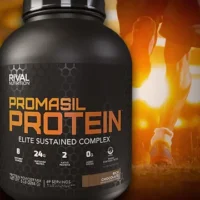Knowledge BaseYou're Questions Answered
Can protein powder cause kidney stones?
One common concern about protein supplements is whether they can contribute to the formation of kidney stones. Kidney stones are hard deposits made of minerals and salts that form inside your kidneys. Dietary factors can influence their development, but the connection between protein powder and kidney stones is not straightforward and warrants a closer look.
Protein Intake and Kidney Health: High protein diets, particularly from animal sources, have been linked to an increased risk of kidney stones in some studies. This is primarily due to higher levels of oxalate, uric acid, and calcium in the urine after consuming large amounts of protein, which are key components in the formation of some types of kidney stones (1). However, it's essential to differentiate between high protein intake from whole foods and protein supplementation. Most research points towards high overall protein consumption rather than protein supplementation specifically as a potential risk factor.
Protein Powder and Hydration: Another aspect to consider is hydration. Protein powders, especially when consumed in large quantities, can lead to dehydration if not balanced with adequate fluid intake. Dehydration is a known risk factor for kidney stones, as it concentrates the substances in urine that lead to stone formation. Ensuring sufficient water intake is crucial when consuming protein supplements (2).
In conclusion, while high protein diets can increase certain risk factors for kidney stones, there is no direct evidence that protein powders, specifically, are a causative factor. Moderation and a balanced diet, along with proper hydration, are key in minimizing any potential risks. As always, individuals with existing kidney problems or a history of kidney stones should consult with a healthcare professional before making significant changes to their protein intake.
- Ferraro, P.M., Taylor, E.N., Gambaro, G., & Curhan, G.C. (2016). Dietary and Lifestyle Risk Factors Associated with Incident Kidney Stones in Men and Women. The Journal of Urology, 196(4), 1137–1143.
- Goldfarb, D. S. (2013). Dietary and medical management of recurrent nephrolithiasis. Canadian Journal of Urology, 20(5), 6883–6887.
Related Questions
Protein vs Protein

Your Answer
We are a participant in the Amazon Services LLC Associates Program, an affiliate advertising program designed to provide a means for us to earn fees by linking to Amazon.com and affiliated sites.


